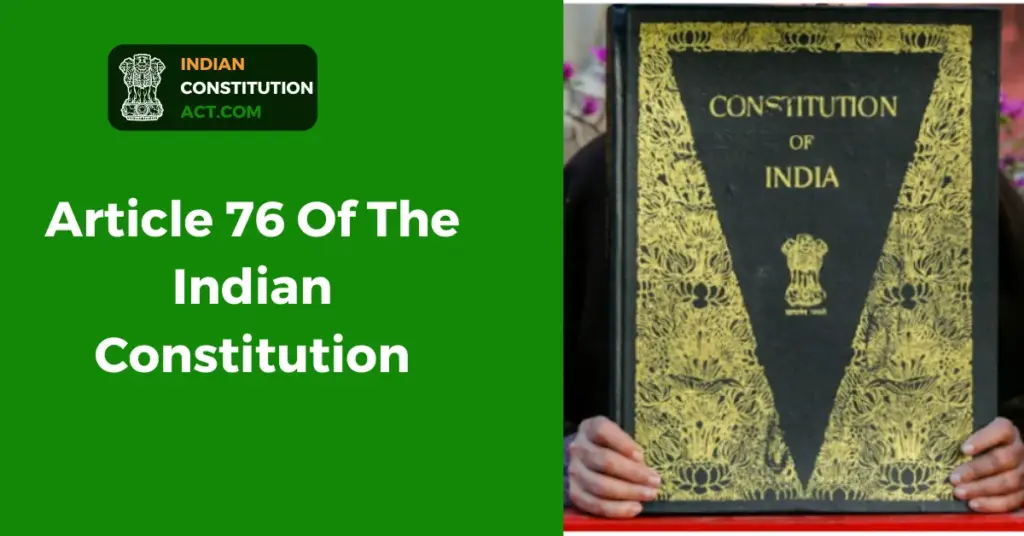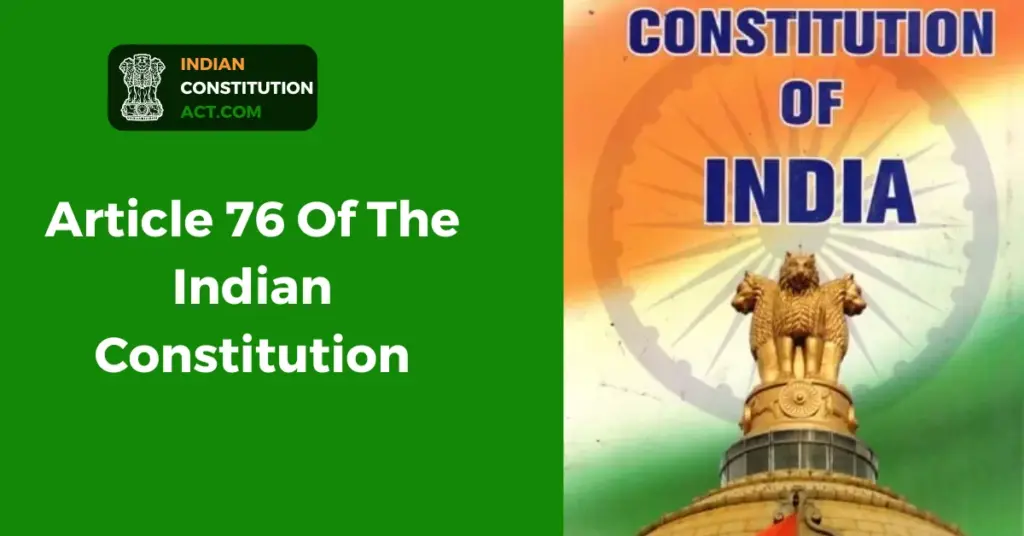The Indian Constitution plays a very important role in the country. Without it, most of the work being done in India would stop or get spoiled. It is a record that delivers laws for political systems, powers, and duties of the Indian government. In 1949 the Indian Constitution was adopted. It had 395 articles but after many amendments, it has now become 448 articles. Yes,104 amendments have been performed since its enactment in 1950. Today we will read about a very special article. In this blog, we have explained Article 76 of the Indian Constitution to you.
Table of Contents
Article 76 Of The Indian Constitution In Simple Words

Article 76 of the Indian Constitution talks about the Attorney-General for India or in simple words you can legal advisors of the country.
In the first clause, it is said that the President can appoint a person as attorney general for India. But he or she must have enough qualifications to become a judge of the Supreme Court then only the President can appoint him or her for the post.
In the second clause, it is explained what will be the work of the Attorney General of India. It is the job of the Attorney General to take advice whenever the Government of India needs to take any case or situation. Who can ask for advice from the Attorney General is also written in this clause.
The President will seek advice from the Attorney General on behalf of the Government of India and the Council of Ministers. If there are changes in this Constitution, then in the future the Attorney General will have to do that as well.
The Attorney-General has the right to go and sit in any court in all the territories that come under the Government of India.
As long as the Council of Ministers feels that the Attorney-General is fit for the job, he or she will not be removed from his or her post, but whenever the Council of Ministers wants, the Attorney-General can be removed from his or her post. This means ‘Pleasure of the President’.
Also read: Article 72 Of The Indian Constitution: Pardoning Power Of The President
Article 76. Attorney-General for India

Clause 1: The President shall appoint a person who is qualified to be appointed a Judge of the Supreme Court to be Attorney-General for India.
Clause 2: It shall be the duty of the Attorney-General to give advice to the Government of India upon such legal matters, and to perform such other duties of a legal character, as may from time to time be referred or assigned to him by the President, and to discharge the functions conferred on him by or under this Constitution or any other law for the time being in force.
Clause 3: In the performance of his duties the Attorney-General shall have the right of audience in all courts in the territory of India.
Clause 4: The Attorney-General shall hold office during the pleasure of the President, and shall receive such remuneration as the President may determine.
This article is for the attorney-general for India. We have tried to explain Article 76 of the Indian Constitution well and hope you have got all the important information about this article. Thank you!
